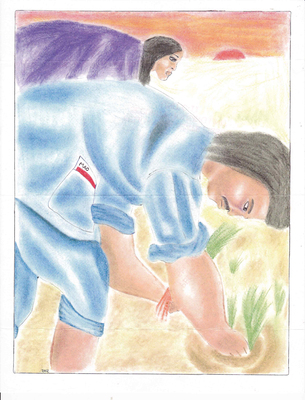
Big Fat Elephant in the May Day Dialogue

Charlie Kernaghan of the Institute for Global Labour and Human Rights was interviewed for a segment on the recent tragedy in Bangladesh and the labor struggle in general. Kernaghan informed us that 421 people are confirmed dead and another 1000 are still missing, meaning they are probably dead under the rubble of the factory that collapsed. He explained that the workers were not only threatened with no pay for the month, which would equal going hungry, but they faced the immediate threat of thugs with batons. As the recent fertilizer explosion in Texas showed, the profit motive under capitalism puts everyone’s lives at risk. Still, there is a quantitative difference between being forced back into a dangerous situation with batons, and being unaware that it exists. The relative risk faced in the Third World is higher.
As MIM and others have shown elsewhere, there is a qualitative difference between First World wage earners in that they earn more than the value of their labor and are therefore exploiters, in contrast to the exploited proletariat.(2) The conversation around the Bangladesh tragedy degenerated into white nationalism when interviewer Amy Goodman began asking about what is to be done. After cheerleading for more protection of Amerikan wages, the guest began calling for trade barriers to goods from countries like Bangladesh until they can follow certain labor standards enforced by U.$. law. Such opposition to free trade organizes the exploiters at the expense of the exploited.
The elephant in the room became harder to ignore as the guest talked of
workers making 21 cents an hour in the same breath as the immiseration
of Amerikan workers. Yet, when Goodman began dancing around the wage
question the guest responded:
“Well, like I said with the legislation, it’s not our job to set wages around the world. That’s up to the people in their individual countries. But what we can do is we can demand that if you want to bring the products into the United States, that these workers must have their legal rights.”
How is it that we can enforce child labor laws, but when it comes to wages the Third World is suddenly on their own? How can you talk about international “labor solidarity” without talking about an international minimum wage? The idea is ridiculous and the only reason it happens is that the Amerikan labor leaders know that the average wage in the world is well below what they are already making. They want to keep earning more than their fair share, while putting up trade barriers for products produced by exploited labor.
We presume that the people of South Asia will not mistake people making $20k a year, and much more, as being part of the proletariat. But as we come closer to the heart of empire, the proletariat’s class view becomes more and more skewed. There is no better example of this than in Aztlán today, where migrant workers see the vast wealth around them and the possibility of getting a piece of it. After the oppressed nations took over May Day in the United $tates seven years ago, the left-wing of white nationalism worked overtime to infuse this new proletarian movement in the belly of the beast with the line of the labor aristocracy.
Today, as the federal government claims to be close to enacting “immigration reform” that will amount to more Amerikan exceptionalism and favoritism, we favor the focus on reunification of families that some in Los Angeles called for on this May Day. This is an issue that ties in well with the national question, rather than economist demands for more access to exploiter-level wages. Reunification challenges the repressive border that keeps families apart, and keeps whole nations of people alienated from the wealth that they produce. As integration in the United $tates has advanced, challenging the border and fighting white nationalism, or better yet First Worldism, needs to be at the center of a progressive proletarian movement in Aztlán. These are the issues that really sparked the massive May Day rallies in 2006 in response to pro-Minutemen Amerika.(3) This is the spirit that we celebrate this May Day.








